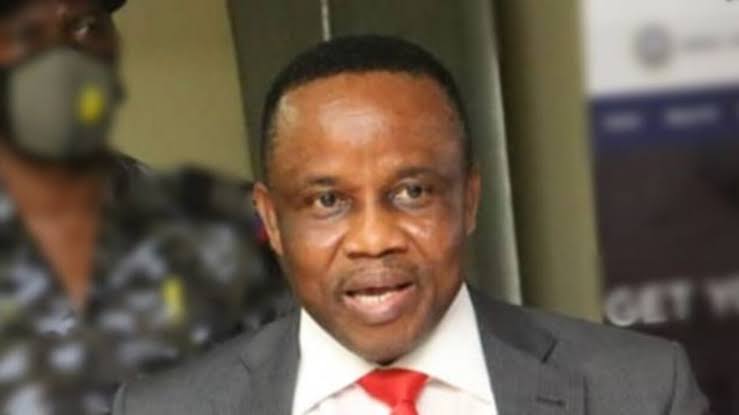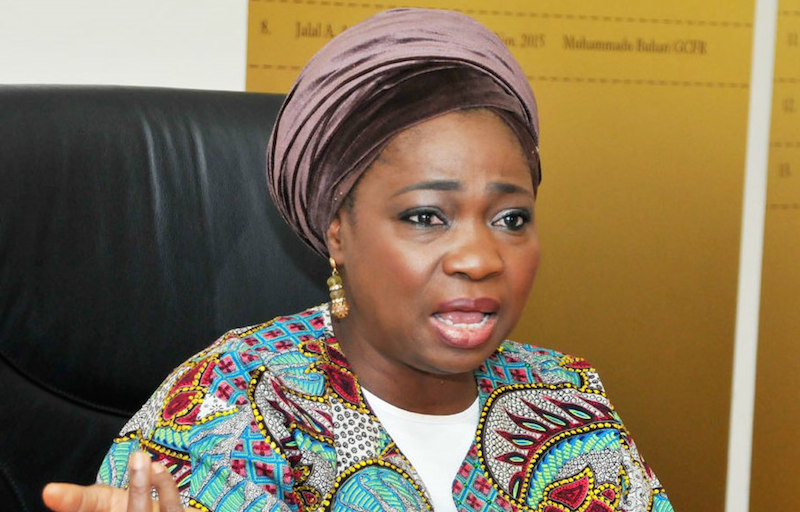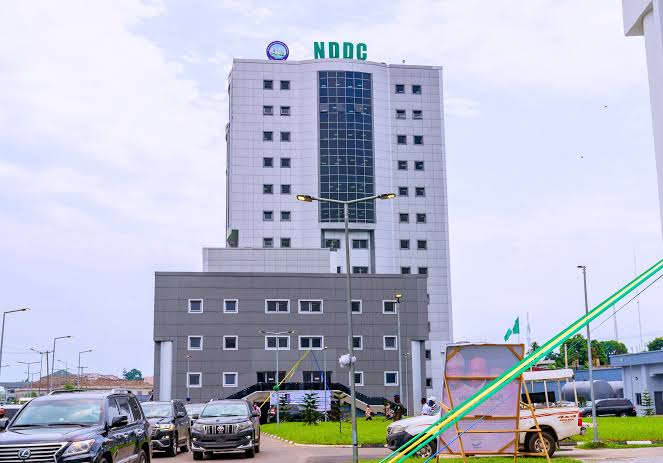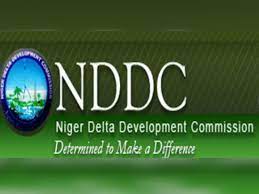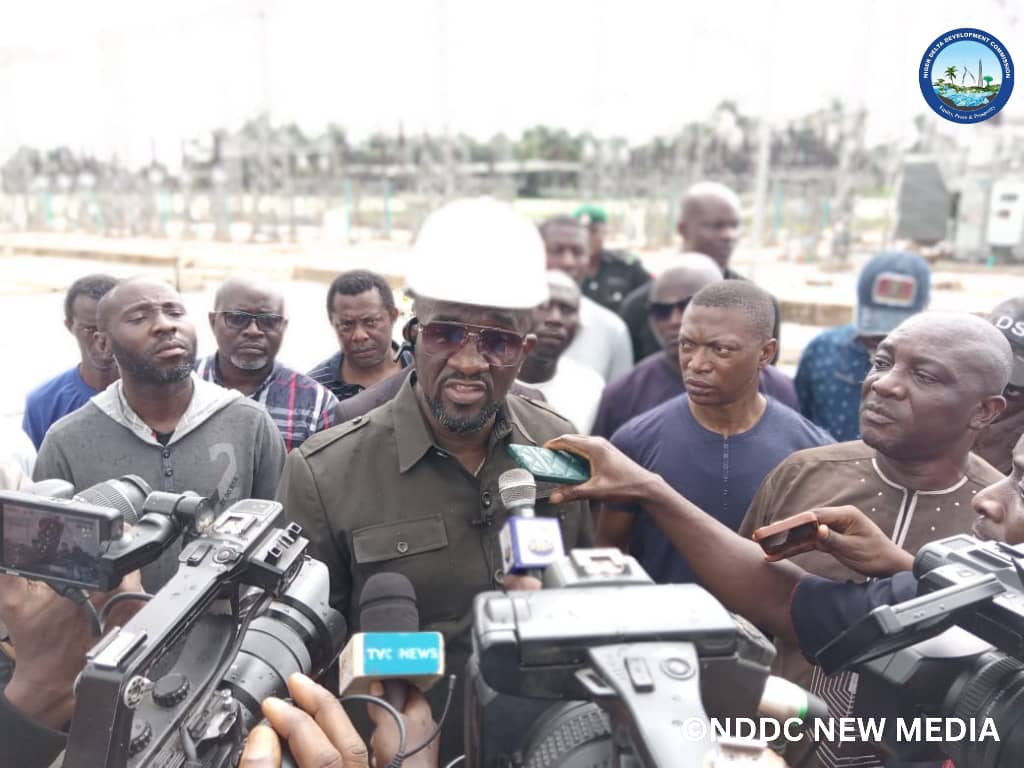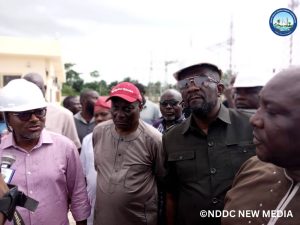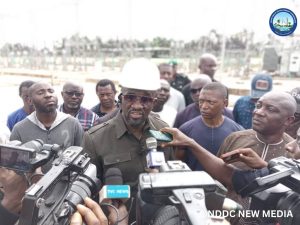By Pius Ughakpoteni
The Niger Delta region is like a diamond in the rough. It has vast potential for wealth and prosperity due to its reserves of oil and gas and its largely youthful population. Due to its neglect, it has suffered. Like a person with abundant natural resources but an inadequate environment to foster them, the Niger Delta has excellent success potential. Still, it needs improvement with more opportunities and support.
Likewise, the region is like a beautiful flower that is both a blessing and a curse simultaneously. Its beauty and bounty provide sustenance for the people, while its hidden thorns bring destruction and despair. The petals are delicate, and the color is stunning. However, if you look closer, you will see that the stem is weak and the roots are rotting.
The statutory mandate of the Niger Delta Development Commission (NDDC) is to foster enduring growth in the Niger Delta area, like a gardener nurturing a garden for bountiful harvests. The immense oil and gas resources within the Niger Delta serve as this metaphorical garden, offering substantial income streams for the nation. As soon as it got its mandate, the NDDC worked on cultivating sustainable development in the region. NDDC is committed to nurturing and growing this vital area of our country’s economy like a skilled gardener.
Over the years, the NDDC has faced numerous challenges in achieving its objectives. These challenges include inadequate funding and inadequate partnerships with relevant stakeholders. To overcome these challenges, the NDDC has adopted a partnership approach that prioritizes building strong and effective partnerships with relevant stakeholders.
Through Management, the recently inaugurated Governing Board chose this option because it believes that with the proper care, attention, and resources, this diamond can be polished and transformed into a beautiful jewel that brings wealth and stability to the region. NDDC is committed to nurturing and growing this vital area of our country’s economy like a skilled gardener.
Imagine a lush garden brimming with life and beauty. Like the diverse range of plants required for such a garden to thrive, various stakeholders are necessary for the Niger Delta to flourish. Think of the Niger Delta as a flourishing garden. Just like how a diverse range of plants is essential for its growth and prosperity, so too are different stakeholders crucial to the success of this region.
NDDC is working towards sustainable development in the Niger Delta through its partnership approach. NDDC’s partnership approach to sustainable development in the Niger Delta is like building a house. With all stakeholders working together, the house will be complete. But with every stakeholder contributing their part, they can erect a strong and lasting house. Partnerships are like three-legged stools. Only when all three legs work together can the stool be stable. In the same way, only when all stakeholders work together can the Niger Delta achieve sustainable development.
One of the key stakeholders the NDDC needs to work with is the private sector. The private sector has the expertise, resources, and technology to drive economic growth and development in the Niger Delta region. By partnering with the private sector through public-private partnerships (PPPs) and joint ventures, the NDDC can successfully leverage these resources to implement its programs and projects. The public and private sectors can collaborate through PPPs to finance, design, build, and operate infrastructure projects. Likewise, joint ventures allow two or more entities to partner on a specific project or business venture.
Another stakeholder the NDDC needs to partner with is the government at all levels. The government is critical in promoting sustainable development in the Niger Delta region. By partnering with government agencies and departments, participating in government-led initiatives, and advocating for policies that promote sustainable development, the NDDC can access government resources, policies, and programs that support its development objectives. The NDDC is also keen on more vital collaboration with state and local governments to implement programs and projects that address their communities specific needs.
Furthermore, civil society organizations (CSOs) and community-based organizations (CBOs) are essential partners for the NDDC. These organizations deeply understand the needs and aspirations of people in the Niger Delta region. By collaborating on specific programs and projects, leveraging their expertise and resources, and involving them in planning and implementation, the NDDC can ensure that its programs and projects align with the needs and aspirations of people in the region.
The NDDC also needs the cooperation of foreign entities such as multilateral agencies, foreign government agencies, donor agencies, and multinational corporations to promote sustainable development in the Niger Delta region. Multilateral agencies such as the World Bank, African Development Bank (AfDB), United Nations Development Programme (UNDP), and International Monetary Fund (IMF) can provide technical assistance, funding, and policy advice to the NDDC. These agencies have extensive experience promoting sustainable development in developing countries and can give the NDDC valuable insights and expertise.
Foreign government agencies such as the United States Agency for International Development (USAID), the Department for International Development (DFID) in the UK, and the German Agency for International Cooperation (GIZ) can also partner with the NDDC to promote sustainable development in the Niger Delta region. These agencies can provide funding, technical assistance, and policy advice to the NDDC and collaborate with the NDDC on specific programs and projects.
Donor agencies such as the Bill and Melinda Gates Foundation, Ford Foundation, and Rockefeller Foundation can also partner with the NDDC to promote sustainable development in the Niger Delta region. These agencies can provide funding, technical assistance, health, education, and agriculture expertise.
Multinational corporations such as Shell, Chevron, ExxonMobil, and Total have a significant presence in the Niger Delta region. They can partner with the NDDC to promote sustainable development. These corporations can provide funding, technical assistance, and expertise in environmental management, community development, and corporate social responsibility. The NDDC can partner with these corporations in various ways. These include participating in joint ventures, leveraging their expertise and resources, and involving them in planning and implementing programs and projects.
Partnerships will enable the NDDC to leverage diverse perspectives and resources to address the region’s complex challenges. With various forms of collaboration, the NDDC can overcome challenges by leveraging partners’ expertise and resources to implement programs and projects that promote sustainable development in the Niger Delta region.
The Niger Delta region has enormous potential for economic growth and development. By working together, we can unlock this region’s full potential and create lasting prosperity for all involved. The NDDC needs to work with many stakeholders to benefit all who call this beautiful garden home. Partnering with the private sector, government, CSOs, CBOs, and foreign entities is critical to the NDDC’s success in promoting the sustainable development of the Niger Delta region. The NDDC can leverage its partners’ expertise and resources to implement its programs and projects for the region’s speedy growth.
Therefore, the NDDC is beckoning all stakeholders to unite as partners in progress toward building an even brighter future for the Niger Delta. Join us as we work toward sustainable development in the region. By investing in the human potential of the Niger Delta’s youthful population, we can unlock even more excellent opportunities for growth and development. Let’s work together to cultivate an environment where everyone thrives! It is time to open the Niger Delta region’s potential and let it shine brightly.
Pius Ughakpoteni is the Director, New Media at the Niger Delta Development Commission, Port Harcourt.
